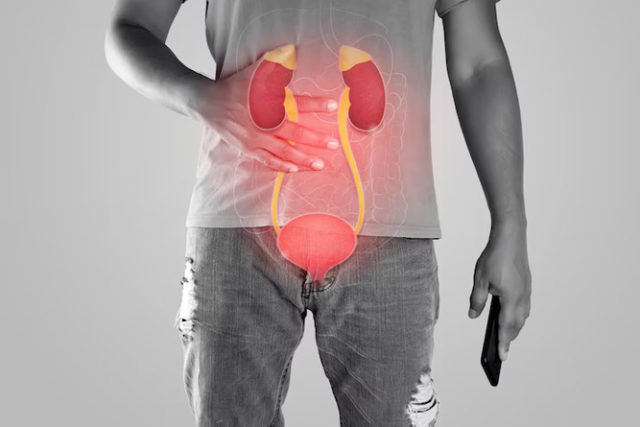The GI tract is affected by Crohn’s disease, a chronic condition known as inflammatory bowel disease (IBD). The small intestine as well as the start of the large bowel are the most frequently affected areas, but it can also cause inflammation in everything from the oral cavity to the anus. Corticosteroids, immunomodulators, and biomedical treatments are common drugs used to manage the symptoms of Crohn’s disease and reduce inflammation. In some circumstances, surgery can be required to remove damaged GI tract sections.
Symptoms of Crohn’s Disease
Depending on the location and degree of irritation in the digestive tract, Crohn’s disease symptoms might differ from person to person. The following are some typical signs of Crohn’s disease:
- Abdominal pain and cramping: Crohn’s disease is frequently characterised by abdominal pain and cramping, which is brought on by inflammation of the digestive tract.
- Diarrhea: Blood or mucous may be present in the stool along with diarrhea.
- Weakness and fatigue: Chronic inflammation can make you feel constantly exhausted and low on energy.
- Loss of appetite and weight: These signs and symptoms may be brought on by digestive system irritation and pain.
- Mouth sores: They can develop inside the mouth and can be uncomfortable.
- Joint pain: In addition to the intestines, the joints can also become inflamed as a result of Crohn’s disease.
- Skin problems: Rashes, sores, and other skin issues can appear in some Crohn’s disease patients.
It’s significant to remember that symptoms can be moderate to severe and may change over time. It’s vital to talk to a healthcare physician if you encounter one of these signs or have questions regarding your digestive health.
Causes of Crohn’s Disease
It is still unclear what causes Crohn’s disease exactly. Yet, research indicates that a mix of the immune system, environmental, and genetic variables can contribute to its development.
- Genetics: Those who have a record of Crohn’s disease in their families are more prone to get the disorder. The likelihood of Crohn’s disease has been linked to a number of genetic variations.
- Environmental variables: In people who are sensitive, environmental factors like food, tobacco, and exposure to specific viruses or bacteria can cause an aberrant immune response that results in inflammation of the digestive tract.
- Immune system dysfunction: Individuals with Crohn’s disease experience persistent irritation and harm to the intestinal lining as a result of the immune system incorrectly attacking benign bacteria, food debris, and other things in the digestive tract.
- Dysbiosis: Amendments in the content of intestinal microbiota, or the equilibrium of bacteria in the gut, have been connected with Crohn’s disease.
Treatment for Crohn’s Disease
Crohn’s disease does not yet have a known cure, however, medication can help control symptoms and lessen digestive tract inflammation. Achieving and maintaining remission, raising the standard of living, and avoiding complications are the targets of treatment. Treatment options for Crohn’s disease can involve a mix of prescription drugs, dietary changes, and, in some circumstances, surgery.
- Medication: Several different kinds of medicines have been employed to manage Crohn’s disease, such as:
- Aminosalicylates and corticosteroids are anti-inflammatory medications that can help to lessen digestive tract inflammation.
- immune system suppression and inflammation reduction are achieved by immunomodulators such as azathioprine and methotrexate.
- Therapeutic treatments that target certain proteins implicated in the immune response include integrin receptor antagonists and TNF inhibitors.
- Antibiotics to treat intestinal bacterial infections.
- Lifestyle changes: Adopting dietary and lifestyle adjustments can help manage Crohn’s disease symptoms.
- Eliminating trigger foods that can make symptoms worse.
- Consuming small, regular meals as opposed to large ones.
- Consuming plenty of liquids to stay hydrated.
- Using methods to reduce stress, such as exercise or meditation.
- Stop smoking, as it might exacerbate symptoms and raise the possibility of problems.
- Surgery: In some circumstances, surgery may be required to correct complications such as constrictions, fistulas, or abscesses or to remove damaged sections of the digestive tract.
Conclusion
Although Crohn’s disease, a chronic inflammatory bowel illness, has no known cure, many sufferers can lead active, healthy lives with the right care and management. Those with Crohn’s disease should consult closely with their doctor to create a specific treatment plan and schedule routine checkups to monitor their status.

































